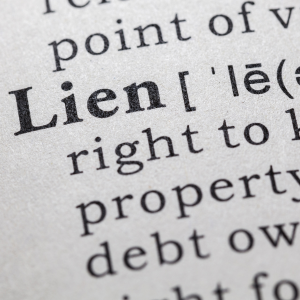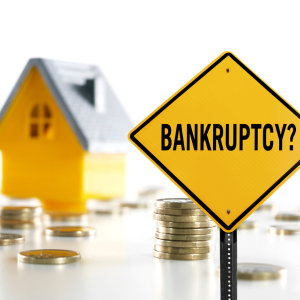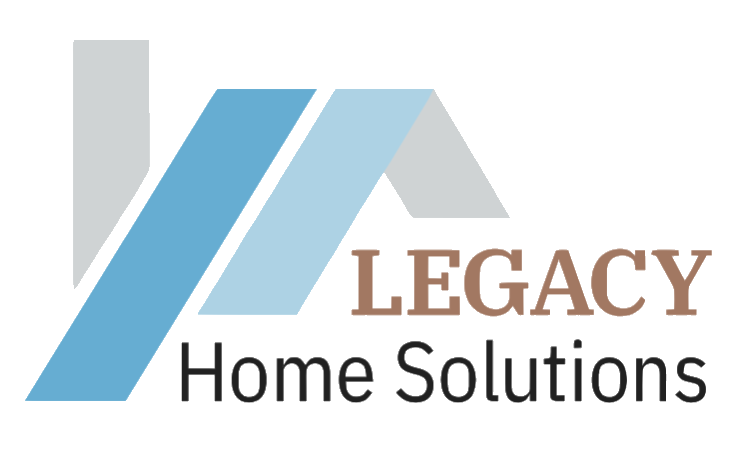
Understanding Homeowners Association (HOA) Powers and Limitations
In Cleveland, Ohio, homeowners associations (HOAs) wield significant authority over property owners within their communities, operating under the governing documents establishing their powers and limitations. These associations can enforce community rules, collect dues, and levy fines for violations of established regulations.
However, the extent of an HOA’s power is not unlimited; it must adhere to state laws and the specific bylaws outlined in its governing documents. In certain circumstances, if a homeowner fails to pay mandatory assessments or repeatedly violates substantial covenants, the HOA may initiate legal proceedings that could ultimately lead to foreclosure.
Nonetheless, this is typically considered a last resort, as HOAs aim to resolve disputes amicably before pursuing such drastic measures. Understanding these dynamics is crucial for homeowners in Cleveland to navigate their rights and responsibilities effectively within an HOA-governed community.
If you’re facing challenges with your HOA or simply looking to move on from a property governed by strict association rules, selling your home might be the best option. Whether trying to avoid costly dues and legal disputes or preferring more flexibility, Legacy Home Solutions, LLC in Cleveland can help streamline the selling process. We specialize in purchasing homes in HOA communities and offer a hassle-free way to sell quickly, even if your property has unique association requirements or unresolved issues.
Financial Responsibilities of Homeownership Within an HOA Community

In Cleveland, Ohio, homeowners residing in a community governed by a Homeowners Association (HOA) must understand the financial responsibilities accompanying such living arrangements. Within an HOA community, residents must pay regular dues or assessments, which fund the maintenance of common areas and community amenities.
These fees are necessary to guarantee that shared spaces, such as parks, swimming pools, and clubhouses, remain well-maintained and accessible to all residents. Additionally, HOAs may impose special assessments for unexpected repairs or improvements needed within the community.
Failure to meet these financial obligations can lead to significant consequences; in some cases, if dues remain unpaid, the HOA has the legal authority to place a lien on the homeowner’s property. In extreme situations where debts continue unresolved, this lien could lead to foreclosure proceedings initiated by the HOA.
If you’re a homeowner in a Cleveland HOA community struggling to keep up with dues or facing the possibility of a lien or foreclosure, it’s essential to act quickly. Whether you’re looking to sell your home to avoid further penalties or simply want to explore your options, don’t hesitate to reach out to Legacy Home Solutions, LLC. We can help you navigate your situation clearly and provide solutions for your unique circumstances.
Assessing the Risks of Non-payment of Hoa Fees and Dues
Homeowners’ associations (HOAs) in Cleveland, Ohio, wield significant authority over enforcing fees and dues. Property owners within these communities are legally obligated to pay HOA fees, which fund essential services such as maintenance, landscaping, and community amenities.
Failure to meet these financial obligations can result in serious consequences. The HOA may first impose late fees or penalties for non-payment, but continued delinquency can escalate the situation dramatically.
In extreme cases, if a homeowner persistently neglects their payment responsibilities, the association has the legal right to place a lien on the property. A lien is a powerful tool that can lead to foreclosure proceedings if not resolved.
This means that an HOA in Cleveland could potentially initiate foreclosure on a homeowner’s property due to unpaid dues, posing a substantial financial risk for those who fall behind. Understanding the specific rules outlined in the community’s governing documents is crucial for homeowners to avoid unexpected legal actions and protect their investment from possible foreclosure initiated by an HOA.
Exploring Hoa Liens and Their Impact on Property Ownership

In Cleveland, Ohio, homeowners associations (HOAs) wield significant power when enforcing community rules and managing shared amenities. One of the most impactful tools at their disposal is the ability to place a lien on a property if a homeowner fails to pay HOA dues or fines.
An HOA lien can seriously affect property ownership, as it clouds the title and can lead to foreclosure if not addressed. In Ohio, state laws give HOAs the authority to file liens for unpaid assessments, prioritizing them over many other claims against the property.
This means that even if a homeowner is up-to-date on mortgage payments, an unresolved HOA lien can still jeopardize their homeownership status. Cleveland homeowners should know their rights and responsibilities under HOA covenants to avoid such drastic consequences.
Understanding how these liens function is crucial for maintaining clear property titles and preventing financial distress related to potential foreclosures initiated by aggressive collection actions from HOAs.
Legal Grounds for Hoa Foreclosure on Properties
Homeowners Associations (HOAs) in Cleveland, Ohio, have the legal authority to initiate foreclosure proceedings on properties under specific circumstances. When homeowners fail to pay mandatory dues or assessments, the HOA can place a lien on the property, a legal claim against it.
This lien must be recorded with the county recorder’s office to be enforceable. Once the lien is established, the HOA can proceed with foreclosure to recover unpaid dues if the homeowner neglects payment obligations.
The process typically involves notifying the homeowner of their delinquency and providing an opportunity to resolve the debt before any legal action escalates. Homeowners in Cleveland must understand that Ohio law supports HOAs in this regard, though procedural safeguards are intended to protect homeowners from arbitrary foreclosure actions.
These include requirements for proper notice and opportunities for dispute resolution or payment plans before pursuing foreclosure through court proceedings.
How Bankruptcy Affects Your Obligations to an HOA

In Cleveland, Ohio, filing for bankruptcy can profoundly affect your obligations to a homeowners association (HOA). When filing for bankruptcy, an automatic stay is usually put into place, which pauses almost all the collection activities from your creditors, even your HOA.
That said, the stay doesn’t necessarily wipe out all of your obligations with the homeowners’ association, as in a Chapter 7 bankruptcy scenario, HOA fees before filing may be discharged, meaning you are not legally bound to pay them.
As for post-petition fees—in other words, fees assessed after filing—they are your responsibility and must be paid if you wish to hold good standing with the HOA. Chapter 13 bankruptcy, however, allows you to limit overdue payments and dues, including HOA dues.
You must keep in mind that any loan that is restructured through these proceedings will still be considered during the bankruptcy proceedings. The overriding mandates of the association will still require some ongoing obligations that could lead to penalties and, in some instances, foreclosure actions by the association on your property.
If you’re overwhelmed by financial strain and mounting HOA dues even after filing for bankruptcy, one practical solution may be to consider selling your property. Fortunately, we buy houses in Cleveland and surrounding cities, offering a quick and hassle-free way to offload your home and avoid further penalties or foreclosure proceedings from your homeowners association.
Approaches to Settling Delinquent HOA Dues Reasonably
Cleveland, Ohio, has numerous homeowners associations (HOAs) with the power to enforce regulations, one of which is the collection of dues. Each homeowner is bound to these contracts and has to make payments regularly or else face extreme consequences, like losing their homes due to foreclosure.
To recuperate overdue HOA payments, it is recommended that members first negotiate with their board and try to come to an arrangement in the form of a payment plan, extension, or any other form that is favorable to both parties. Taking this step can stifle the escalation of conflict and, simultaneously, make the members show their willingness to work towards a solution.
A financial expert can also help formulate a realistic plan that balances essential expenses and overdue payments, ensuring the payments are made without additional financial stress. Dispute resolution mechanisms such as mediation can help the parties reach an agreeable compromise to negotiate the terms.
Knowing the relevant bylaws and determining the right HOA for them in Cleveland is extremely important since every association works under a different set of rules that govern how it deals with delinquencies. Taking action to seek a resolution early in the conflict while utilizing the available options, especially legal counsel if needed, allows the members to take steps to safeguard their compliance with HOA rules.
Can an HOA Foreclose on a Home in Ohio?
In Ohio State, specifically in Cleveland, an association set up to oversee the homeowners is legally permitted to foreclose on a property if certain criteria are met. The association may place a lien if the mandatory HOA dues are not paid on time.
This action is actionable and can be terminated if a person takes legal steps. As stated earlier, in Ohio, the associations have the legal right to foreclose if they have provided proper notice and steps to the prospective debtor to satisfy their debt.
Usually, the first step is to sue in a court. The homeowner is in breach of the loan agreement made with the association. However, they need to stay within the framework of their governing documents. With all the possibilities of foreclosure approaching, these homeowners need to educate themselves entirely on the fee system of their HOA.
If you’re facing the risk of HOA foreclosure in Cleveland, it’s important to understand that you have options. When legal action is imminent due to unpaid dues, some homeowners sell their properties quickly to avoid further financial distress. Fortunately, cash home buyers in Ohio and nearby cities can provide a fast and efficient solution, helping you avoid the long-term consequences of foreclosure while preserving your credit and peace of mind.
What Happens If You Don’t Pay HOA Fees On A House That Is Fully Paid Off?
In Ohio, the law allows homeowners’ associations in Cleveland to place a lien against your property if you neglect to pay HOA dues and assessments. Even if your home is paid off, it is important to note that an HOA can legally foreclose on it for not paying fees associated with the home.
The surprising but legally accurate information is that Ohio law empowers HOAs in Cleveland to financially obligate homeowners in ways that might be counterintuitive. A lien would ultimately lead to foreclosure on a home, despite no mortgage on the house. The only condition would be that the payments owed by the homeowner are not paid.
Homeowners are advised to familiarize themselves with the governing documents of the HOA and pay all payments promptly to retain ownership of the property. The legal setup of HOAs in Ohio is critical in understanding why investment protection needs due consideration, especially in Cleveland, where investment risks can arise from unpaid payments to the association.
What Happens If You Don’t Pay HOA Fees in Ohio?
If you do not pay your HOA fees in Ohio, particularly in areas like Cleveland, the homeowners association (HOA) can take significant measures against you. To begin with, the HOA will likely charge late fees and interest on the outstanding payments, which adds to your financial burden.
The HOA may impose a lien on your property if the delinquency worsens. This lien, in essence, is a legal claim that can restrict your ability to sell or refinance your house and its title.
In extreme cases, should the overdue amounts for dues remain unpaid for a long duration, the HOA may decide to take legal action by initiating foreclosure proceedings to recover what is owed. So, technically speaking, an HOA in Cleveland, Ohio, can take possession of a house if overdue assessments are not paid.
Understanding the community bylaws as an essential document for homeowners is a must, especially considering the consequences that can lead to dire situations, such as not settling HOA dues.
What Power Do HOAs Have in Ohio?
Homeowners Associations (HOAs) in Ohio, including those in Cleveland, have the overarching power to enforce community rules and regulations. Typically, these powers are defined in the Covenants, Conditions, and Restrictions (CC&Rs), which each homeowner agrees to upon buying a house in an HOA-managed community.
In Ohio, HOAs are empowered to levy fines for violations of community rules, manage common areas, and enforce architectural standards. Most notably, if a homeowner neglects to pay the HOA dues or fines, the association can place a lien against the property.
If left unresolved, this lien may eventually lead to foreclosure. Thus, it may be shocking, but an HOA legally reserves the right to commence foreclosure proceedings on a home because of unpaid assessments or other financial obligations.
These are essential facts for all homeowners in Cleveland and across the state of Ohio. They need to be known and actively monitored regarding their rights and responsibilities within their associations.
Do you need to sell your home? Whether you want to sell quickly, avoid expensive repairs, or want a hassle-free sale, Legacy Home Solutions, LLC is here to help. We provide fair cash offers, care for everything, and simplify the process. If you’re ready to sell or have questions, contact us at (440) 973-6024 for a complimentary offer. Start today!
| COVENANTS, CONDITIONS, AND RESTRICTIONS | HOMEOWNER ASSOCIATIONS | HOMEOWNER ASSOCIATIONS (HOAS) | LIENHOLDER | COA LIENS | FIRST LIEN |
| STATE OF OHIO | NON-JUDICIAL FORECLOSURE | FORECLOSURE DEFENSE | OVERSIGHT | STATE REGULATIONS | ATTORNEYS |
| LAWYER | BANKRUPTCY LAW | BUYDOWN | MORTGAGES | MORTGAGE INTEREST | BUDGETING |
| ANNUAL BUDGET | MANAGEMENT | INFORMATION | POLICIES | HOME OWNERSHIP | LENDER |
| DISCRIMINATORY | DISCRIMINATION | DEBT COLLECTION | DEBT COLLECTOR | STATUTORY LAW | INSURANCE |
| INSURANCE COMPANY | FAIR HOUSING | FAIR HOUSING ACT | FEDERAL FAIR HOUSING ACT | HOUSING DISCRIMINATION | DISABILITY |
| DISABILITIES | DISABLED PERSONS | COST | CONDO | CONDOMINIUMS | AMERICAN |
| TAXES | TAX | NONPROFIT | NONPROFIT ORGANIZATION | UPKEEP | MAINTENANCE, REPAIRS, AND OPERATIONAL |
| MAINTENANCE AND REPAIR | ROUTINE MAINTENANCE | LOANS | LEGISLATION | COMPLAINT | |
| POSTAL CODE | ZIP CODE | OHIO REVISED CODE | FDCPA | CIVIL RIGHTS | CIVIL RIGHTS LAWS |
| SEX | RELIGION | PROPERTY VALUES | RACE | PROPERTY TAXES | REAL ESTATE TAX |
| OHIO ATTORNEY GENERAL | NONPROFIT CORPORATION | MONEY | INCOME | FEEDBACK | ENERGY |
| CORPORATION | CORPORATION LAW | BINDING AGREEMENTS | CONTRACTS | CONFIDENTIAL INFORMATION | COVENANTS CONDITIONS AND RESTRICTIONS |
